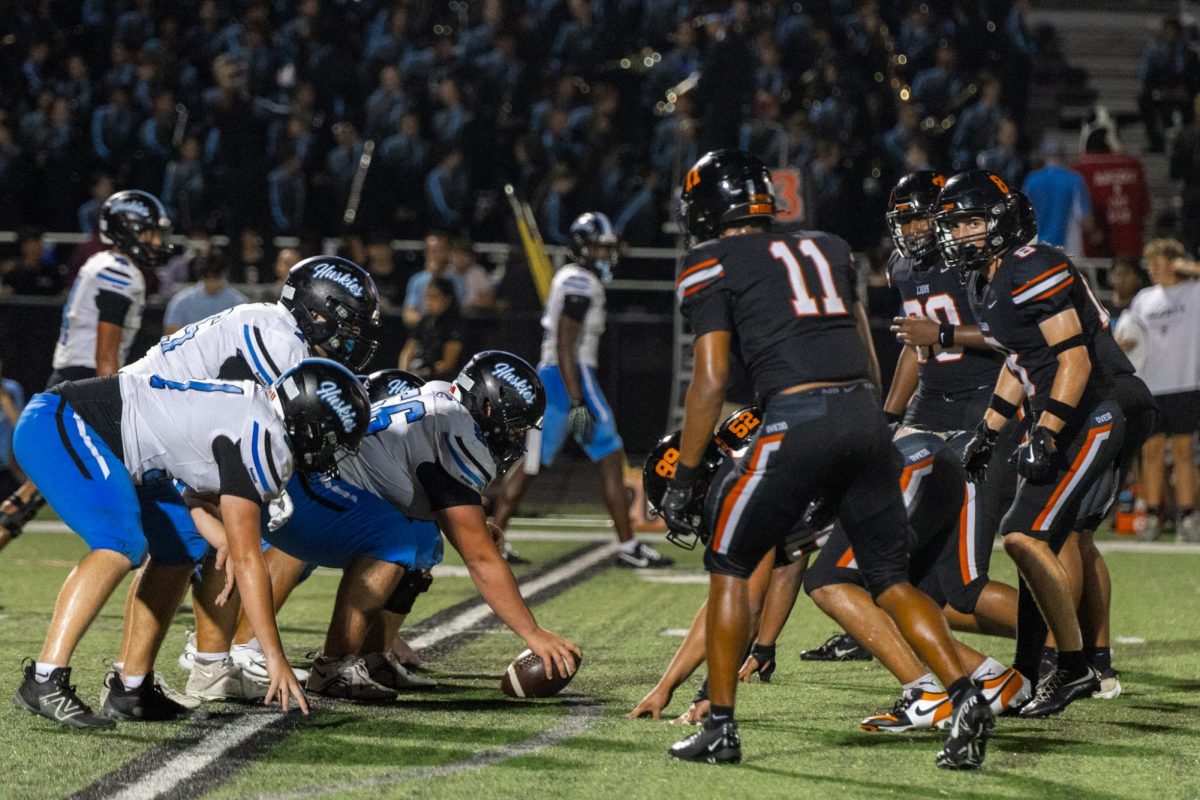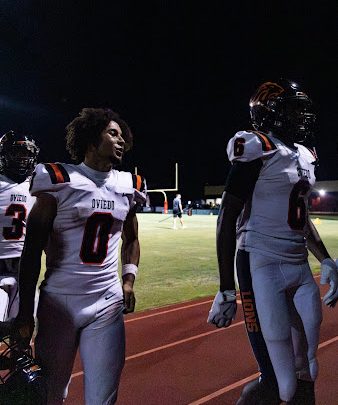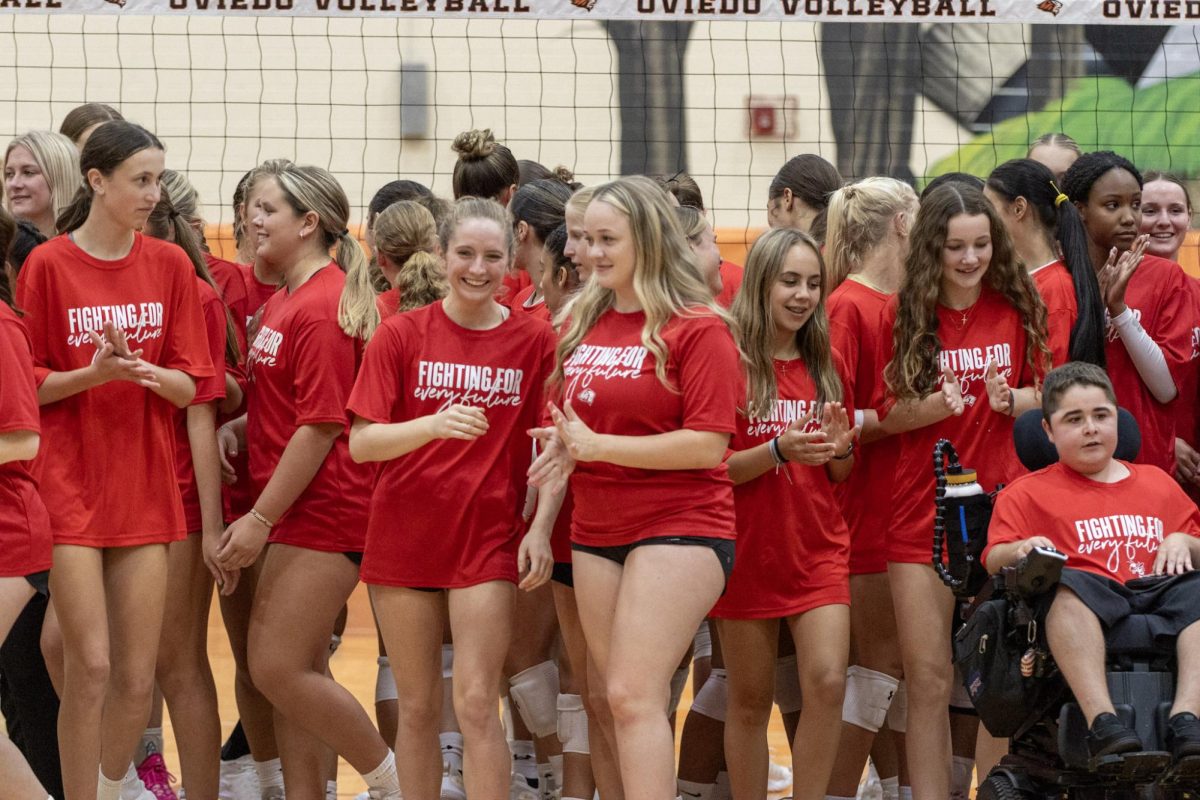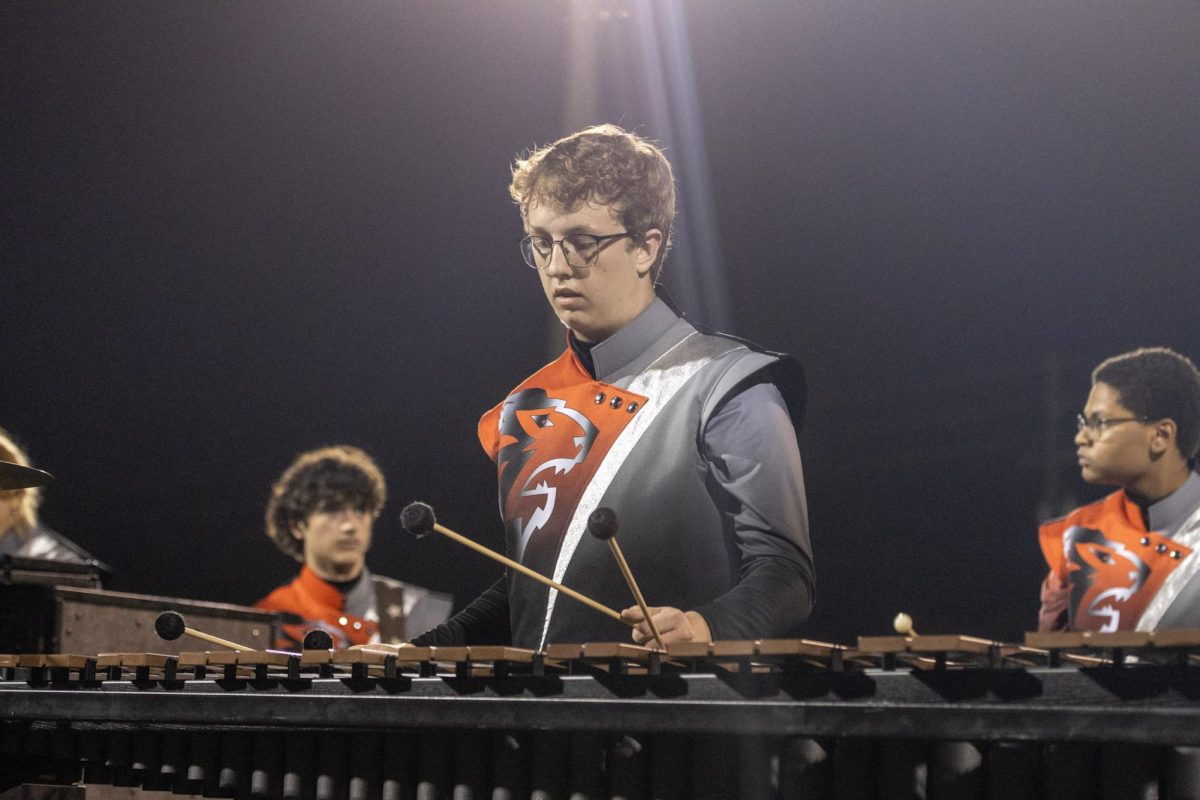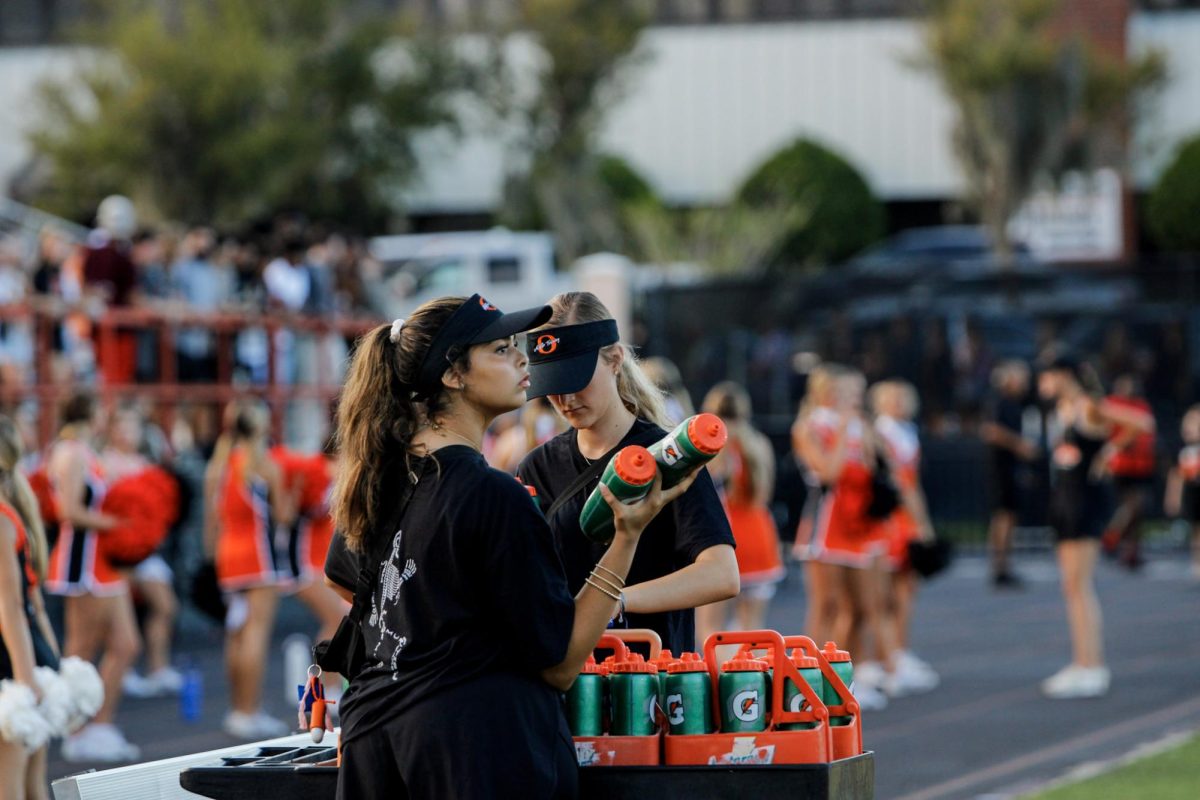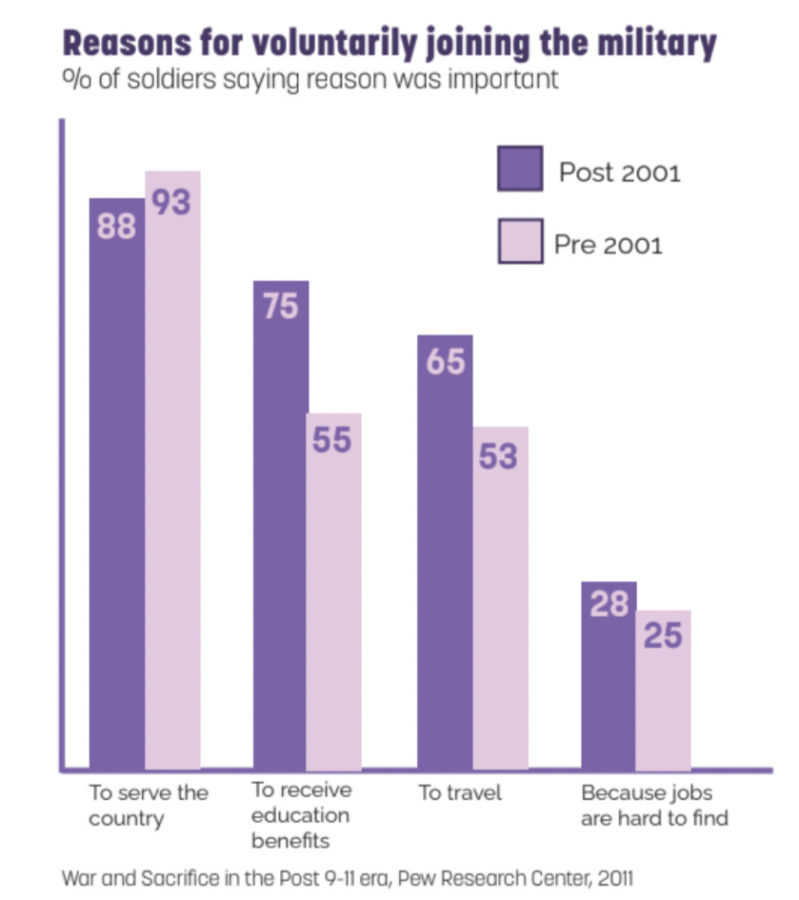Trading lives for an education
This story was originally published in the third edition of The Lion’s Tale (January 31st, 2022).
College prices are on the rise. Students scramble to earn scholarships, competition to earn any sort of money skyrockets. Amidst all of this pressure for students exists a stable presence, the military. Students know that if they can’t earn enough money to be able to send themselves to college, they can always join the military for a chance at affording a degree.
The military has been involved with funding college since a little before the end of World War II. During that time, the GI bill was passed, which is what began military education benefits.
In the late 60s, the percentage of the U.S. population completing highschool or higher, or completing four or more years of college spiked (U.S. Census, various years). This in part was due to schooling becoming more monetarily accessible due to bills like the GI bill, but another big reason for this increase in rights for minorities, no longer limiting college to a select few. And then only a few years later, college became more accessible for women.
So suddenly, the number of people going to college increased off the charts, and the government chose to begin to lessen the number of federal grants they gave out instead of increasing them to meet the growing demand. As a result this encouraged student loans, led to a spiral where as more loans were given, colleges amped up their prices, increasing tuition exponentially.
With more students gaining greater debts, some began to rely on the military to help them manage it. And while the overall number of military personnel dropped, the ratio of people joining the military for education benefits has increased in the past years.
“People joining the military for education benefits changed from 55% in 2001, to 75% in recent years.” Pew Research Center, 2011
This could be tied to the rapid increase in college education costs and people seeing no other way to get an education besides joining the military, at the possible cost of their life.
Your donation will support the student journalists of Oviedo High School. Your contribution will allow us to purchase equipment and cover our annual website hosting and printing costs. Thank you!




